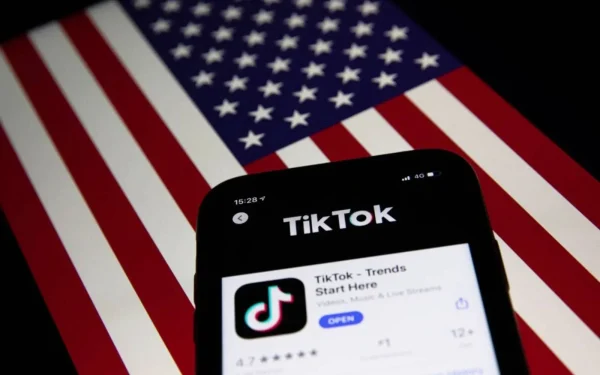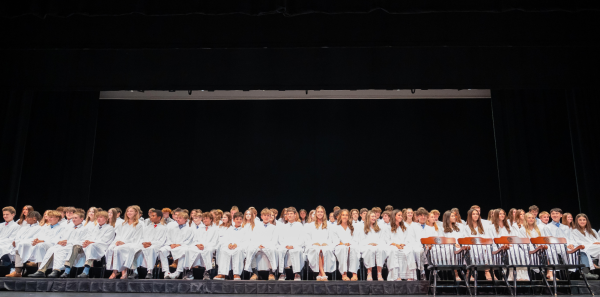The Problem with Extra Credit

Photo courtesy of www.sites.google.com/site/mrsantiagohistoryclass/extra-credit
The problem with attending extra credit events is that students attend just for the credit, not for the enriching experience itself.
Every once in awhile, you get a bad grade on a test. It’s not the end of the world, but your grade drops from a 93 to an 82. Since you are upset about your grade, you go to your teacher and ask if you can do extra credit to help your grade. The next day in class, he or she announces an extra credit opportunity called Poetry and Toads, a Halloween-themed poetry event. You go to the event, read your poem, and leave. When you check your grade later that night, it is back up to a 90. You didn’t have very much fun at the event, but the time was worth it as it brought up your grade.
This is your teacher’s worst nightmare when it comes to extra credit: you went for the credit, but didn’t take the opportunity to really experience the event and be enriched by it. Over the years, and in particular this past semester, the teachers at TBS have given the students many opportunities to earn extra credit by participating in an event led by an author, guest speaker, or extracurricular activity. While the upside for students is boosting their grade, the downside is that the students might not appreciate the full experience because they are going for the wrong reason; namely for points.
“My problem with offering extra credit is that it attracts some students who are in attendance simply to put in their time, get their extra credit, and get out,” said middle school English teacher Mrs. Denise Ponchock. “During the Poetry and Toads event, it was frustrating to watch students stand before an audience having not rehearsed a poem that they planned to recite. Several students were on their phones rather than listening to their peers.”
Other teachers feel that simply getting students to attend is a win/win situation because the students come for the extra credit, but are at least exposed to an enriching experience.
“I just feel as if extra credit brings people in, even if at first they are not interested in going to the event, and then, hopefully, you get them there and they really embrace the value of the event even though they only came for the points,” said Dr. Cristina James, the Middle School’s dean of academics. “Think of extra credit like the universal statement of a critical essay. In this analogy, the extra credit points are like the hook that gets your reader in the door to read the essay.”
The Middle school recently invited author Marja Mills to speak to students about her friendship with acclaimed American novelist Harper Lee. Mills chronicled her time with Lee in her memoir, The Mockingbird Next Door, a book that many of the middle schoolers have read or are currently reading. The students were offered extra credit if they attended and brought a dish to a potluck dinner to hear Mills speak. For Head of Middle School Mr. Charles Hagy, this event provided students a new perspective on the life and work of Harper Lee, an author whose work is an integral part of the English curriculum.
“Part of teaching is to get kids to try things that they otherwise wouldn’t do,” said Hagy. “The carrot of ten points actually got the kids to come in and listen to Mrs. Mills speak, and they were able to get a deeper understanding of To Kill A Mockingbird. So I do [believe] the teachers were successful.”
However, Mrs Ponchock, who sat in the back of the Barker Performing Arts Center as the event unfolded, saw things from a different perspective.
“[During the Marja Mills event], I watched as the audience talked, texted, yawned, and got up during the lecturer’s presentation,” she said. “The general attitude of the audience was that they were there to get the extra credit then leave as quickly as possible. Personally, I prefer quality over quantity. I would rather see fewer in attendance as long as those attending were there voluntarily.”
It seems to boil down to this: the extra credit hook will only lead to the desired result of enriching students if, and this is a big if, the event itself captures their imagination.
In the past, interactive events at TBS that offered extra credit have led to that desired goal. Events like last year’s TEDx Talks and author visits by luminaries like Michael Hingson and Emily Jenkins were all extra credit opportunities that students and teachers really enjoyed. Once they were participating, most even forgot they had only come for extra credit. Last year during the TEDx event, students memorized their speeches and performed them live on stage, and then had their talks published to the TEDx website for the world to see. What a resume builder! Participating also earned them a considerable amount of extra credit. “We couldn’t get rid of students who wanted to keep rehearsing their TEDx talks at the end of the day preceding the event,” said Dr. James of the enthusiasm of the student presenters.
And the Michael Hingson event of a few years ago was a diversity book club event where the students read Hingson’s book, Thunderdog, about how he, a blind man, escaped the World Trade Center on 9/11 with the help of his guide dog, Roselle. Many students, confronted with Hingson’s riveting story and involved in making their own braille posters, forgot all about extra credit as they enjoyed the author’s visit.
Finally, Emily Jenkins, a YA author who wrote the novel, The Disreputable History of Frankie Landau Banks, visited our campus a few years ago and talked about gender equality, a hot topic on our campus and one that played a major role in her novel. Jenkins not only delivered a strong speech about feminism, but she also ran student-fiction writing workshops. These three amazing opportunities made the experiences memorable and fun for the students and teachers. If the authors hadn’t been amazing speakers, their presentation would not have been as fun or interesting.
Perhaps the issue in the case of Marja Mills, while she is an accomplished author and had incredible experiences with Harper Lee, was that she really didn’t seize the full opportunity. Students became bored because Mills retold the story of her book which they had read. Many reported that they would have been more engaged had she told them behind-the-scenes stories they had not encountered in the book and had she been more interactive. In this case, the students came away thinking of the credit instead of the experience.
“I went [to hear Mrs. Mills] for the extra credit,” said an eighth grader who wished to remain anonymous. “[Even though] it was not the most interesting [event], I received the credit.”
On the other hand, some students really enjoy attending these events, and had the experience the school was hoping to provide.
“I went to the Poetry and Toads event,” said Briley Crisafi. “Even without the extra credit that was offered, I would have gone. There are not many opportunities in the school to go to these events and show artistic abilities such as reciting poems or singing a song, so I really enjoyed it.”
Extra credit points are undoubtedly a dilemma. Even though they get people to the events, at what cost? Teachers hand out the points when the students go to the events, which leads to grade inflation – giving the students a higher overall grade than they actually deserve. So what is the solution?
Dr. James offered this: “Perhaps the answer is to eradicate extra credit. As a premiere private school, we are offering some amazing opportunities for students by way of special events and author visits. It does seem rather incongruous to have to ‘pay students’ with extra credit to go to an event they should be happy to go to in the first place.”





Shari • May 28, 2017 at 12:39 am
I think the teacher would of got the students attention if she had put more to her story an made it interesting. I some what agree with Mrs.Denise Ponchock stated bout not given credit, but I think that if you study hard I think you would be able to get extra credit.. I enjoy learning more keep my mind fresh.. we’ll thank you.
Dyan Harris • May 26, 2017 at 11:52 pm
I believe extra credit is essential for schools because it gives students a chance to catch up if they happen to fall behind. Life happens and illness happens not only to the student but close family and friends as well.
Life does not always go as planned, however the chance to earn extra credit is important in my opinion. Extra credit can also give a chance to show case a students ability to express themselves and voice their opinions maybe never previously said.
Each person may differ in opinion on the matter but that is what makes the world go round. The fact that not everyone is going to agree on everything which usually sparks interesting discussions.
Tariq K Stiffend • May 12, 2017 at 4:48 pm
I believe that extra credit is good for the students who might need to make up their failed assignments. Many students should take advantage of the extra credit to boost their grades even more even if they are passing the class. I feel like it is mandatory to do the extra assignment that is provided.
tyesha smith • May 11, 2017 at 11:51 pm
extra credit is something that some people need when they know that they are not doing to good in class and not to good on a test and even if have have done great on a test and some people just want extra credit just to get it but if you need it then you need if you don’t then you don’t that is what I think about extra credit but I do think that it is a good thing
Lukas Burnett • Jan 16, 2017 at 10:33 pm
I completely agree with this solution. I have gone to some of these events and had fun and enjoyed the overall experience at them. When I was there, I even forgot about the extra credit that I was receiving for my attendance. This is due to the fact that I was involved in the event. However, I don’t see extra credit as a dilemma because of the fact that the students are at least making an effort to receive a higher grade. Sometimes you need that credit to get that B to an A which could get you to headmasters or honor roll. I think a better solution is not get rid of extra credit, not make it something that you could just put your attendance into, but instead to meet everyone that is making an effort, halfway.
Nick Murphy • Jan 16, 2017 at 10:05 pm
I agree with many of the points that the author of the article makes. She points out that most students only go to the special events for the extra credit, and that they are not learning anything while they are there, but still getting extra credit. There is an easy solution to solve the problem with extra credit. This solution is to simply wipe out the idea of extra. By eliminating extra credit, students will study harder and get better grades. Students will study harder because they do not have the luxury of getting extra credit in their classes. In fact, students rely so much on extra credit that they go to all the events even if they are “talk[ing], text[ing], and yawn[ing]”. Mrs. Ponchock, a 6th and 8th grade English teacher, says that she would rather see a small amount of students at an extra credit event that go voluntarily, than a large amount of students there involuntarily (without extra credit). People are so obsessed with the idea of extra credit, that even boys would wear dresses to get it.
Will Mahon • Jan 16, 2017 at 9:37 pm
come to the event if not for the extra credit. This is a big issue at school, but there are ways to fix ir. If a student goes to an extra credit event, then maybe they should have to write a summary of what they learned. Extra credit can stay, but it just has to be revamped.
Will Mahon • Jan 16, 2017 at 9:34 pm
After reading Skylar’s article on extra credit, I have a new perspective on extra credit. I now understand why some teachers do not like to give extra credit. Most students do not go to an extra credit event to learn, they go to raise their grade and leave. It must be very difficult for teachers to put so much work into an event, but the students do not take advantage of the event itself. On the other hand, students may not co
Kayla Schneider • Jan 16, 2017 at 5:31 pm
I agree with some teachers who say children only come for the extra credit. In most cases I do think that is true, but what some teachers do not realize is even though children most of the time only come for the extra credit, through the process of getting it they learn and experience what the teachers wanted them to. If teachers feel that we are not getting the experience we should, then in some way the teachers should make it harder for the children to get the extra credit. I agree with the teachers when they say extra credit is the hook to get the children to go. Most children will not take the time out if there is not a reward. One bad thing I think about extra credit is some children do not have the time on that particular day, or that week, etc. Some children have busier lives than others, and might have something very important planned. What is that child supposed to do when the teachers wonder why he or she did not go? Extra credit can be good and bad in different situations. I also think teachers have to realize some children are taking the time out to go and take these opportunities, even if they are not paying full attention, they still tried to make an effort.
Kayla Schneider
Lexi Greene • Jan 16, 2017 at 5:14 pm
Extra credit is something that is interpreted differently by the students who experience it. One thing that really made me think that Skyler wrote was “This is your teacher’s worst nightmare when it comes to extra credit: you went for the credit, but didn’t take the opportunity to really experience the event and be enriched by it”. She explains how the teacher is trying to help you understand things better so your average can go up because you earned it to go up, but if you just go to events and not really soak up the information, you are not getting anything out of it. For me, I will take any or most extra credit opportunities because I give all my effort into the event. I go to understand and get taught more things so that I can earn a higher grade. I do not just go for the points, even though we all want more points. Extra credit allows you to get educated more about something and receive a better grade because you tried your best. An example of some students just going for the points and not getting the information that is needed is when Mrs. Mills came to speak. Mrs. Ponchock said she saw some students that were on their cell phones or even yawing and getting up while she was talking. When I attended that, I attended it to receive more information about an author whose book I have read. Extra credit have different meaning to different students.
Briley Lenox Crisafi • Jan 16, 2017 at 11:51 am
That’s a great article, Skyler! I haven’t been able to read many of your papers, but I’m always impressed when I do. You’re a great writer!
***And thank you for quoting me! XD
Nick Lutz • Jan 16, 2017 at 8:07 am
I do believe that if you took away extra credit points, less kids would come. Also most kids do just go for the points and don’t go to get the full experience of the event. I think if we stop giving extra credit for going to these events, then there will be barley anyone that comes. Yes I know that many of them don’t want to be there, but they are there and they are still experiencing the same thing even if are not as focused or don’t care about it as much as the person next to him or her. I think we should still give extra credit out for these events. Maybe something we can do to make the teacher feel better about this is that if there is someone that goes above and beyond or is really into the extra credit opportunity, then the teacher can give them additional points. Also I believe if you take away extra credit opportunities many peoples grades will suffer and here will be no way to get that 78 to an 80.
Danai Makoni • Jan 15, 2017 at 3:42 pm
I believe that extra credit is a great opportunity to boost your grade. Though extra credit can distract the mind of a student from the general purpose of the task, it is a helpful reminder to know that you will simultaneously boost your grade and earn enriching knowledge. Teachers feel as though there is no solution to extra credit because the student is purely there for the extra credit, instead of the realizing the opportunities that are being opened. Teachers feel as though extra credit should be banned if there is no outcome shown by the student. I feel as though the solution to extra credit is to make the student hands on – giving students an eight sentence paragraph where they will need to explain why this extra credit task was an important opportunity. Extra credit is a way to encourage students that feel as though they are not smart enough, and to also realize their full potential. No matter the grade or age of the student, I feel as though extra credit will always be my boost when I am discouraged. All in all it is the student’s choice to see the what the true opportunities of extra credit are, and to take advantage of each and every one of them.
Carter Stewart • Jan 15, 2017 at 10:50 am
The extra credit can make people want to go to the events and they are not a payment, they are an incentive. But I also feel like people shouldn’t count on extra credit for their grades. If extra credit can be used in the correct way then it’s great. The presentations that give extra credit have to make the kids interested or else they will be on their phones and do things like that. The events that give extra credit would get much less attendance and that would not be good. Extra credit shouldn’t be given too much. The opportunities that give extra credit are interesting and can draw people in. Extra credit is fine as long as it is used the right way
Hudson Hale • Jan 14, 2017 at 12:12 pm
Skyler Zur did a terrific job explaining the problem with extra credit. Extra credit should be something you don’t do just for points, but for learning experince with the extra credit. Poetry and Toads was a good chance to show off many student talents with poetry or a song or a skit, but with the distraction of many phones, the event did not give an impact on the students. When a reader comes, the student should always give the floor to the speaker who has given their time to come to the school and educate us. Finally, an event that was very successful was the TED Talks. These talks opened up many students which many thrived past the one mile marker of writing and giving a class presentation, but they had gone beyond and gave their speeches in the school held TED Talk. My own solution to the extra credit problem is to stop event extra credit and to make it separate extra credit. When a person would like extra credit, they must come to the event, cherish the information given to them, and then write a report or paper on the event.
Ainsley Mitchell • Jan 6, 2017 at 4:34 pm
I think that extra credit has helped me. When I have done it and participated at Poetry and Toads and Marja Mills, I really liked it. I had fun performing my poem and liked hearing everyone’s pieces. I also liked meeting Marja Mills and learned from people asking her questions. I would like to keep extra credit.